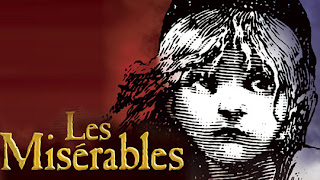
JUDGE: “Monsieur la Mayor, I know you to be a kind man…but this?”
LA MAYOR: “Kind? A kind man? When I was in prison, I was as ignorant and mean and devious as these men here, but not kind. And I wish I could keep my mouth shut and let this poor wretch suffer for me…but, continue with the investigation, monsieur, you will find further proof that I am Valjean.”
This is one of my favorite moments in the film adaptation of Hugo’s novel. Les Miserablés is a study in contrasts, most poignantly the black and white nature of judgment and the abundant nature of grace. Jean Valjean is a testament to the power of transformation and redemption. Javert on the other hand is an example of justice apart from grace. Javert finds grace irrational, since he believes that no criminal could ever truly reform. He demands justice without any consideration of circumstance or repentance. However, such a stance on his part requires that he treat himself in exactly the same manner. Near the beginning of the novel, he tells Monsieur Mayor (Valjean),
“I have often been severe in my life towards others. It was just. I did right. Now if I were not severe towards myself, all I have justly done would become injustice. Should I spare myself more than others? No. What! If I should be prompt only to punish others and not myself, I should be a wretch indeed!”
In a world with no prospect of reform or mercy, Javert, upon finding wrong within himself has two choices: condemnation or hypocrisy. Valjean on the other hand continually offers Javert mercy…which even Javert cannot receive. He has not the power to receive it. His world is too black and white for mercy. “And with the same measure you judge others, so also will you be judged,” immediately rang in my ears when I read this section. Of course, Javert’s character is an extreme case, but extremes often highlight the truth. As humans, Hugo seems to be offering us three choices: condemnation, hypocrisy, or grace, but with the grace, we must be able to accept it. Grace is worthless otherwise.
This is as far as my thoughts have gone so far. I’m just about 50 pages into the abridged version of the novel. I tried the 1500 page full length version when I was a teenager (believe it or not, when I was more prone to read 1000+ page novels), and I didn’t make it past page three-hundred-something. So here I am again, a little less ambitious, but excited.
Question for those of you who’ve read it (or watched the movie), why is Hugo’s story, with these heavy themes of judgment and grace, condemnation and reformation, set in a very unstable revolutionary/post-revolutionary France? How does such a setting illuminate what he’s trying to say? I just began wondering about this while I watched the movie this evening, and I’d love to hear your thoughts.